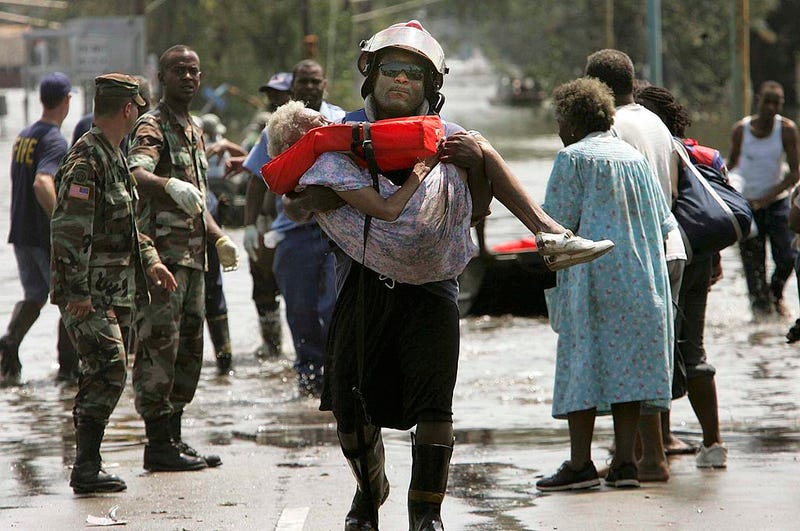
More than 2 million people have died due to extreme weather, climate and water-related events since 1970, according to a report issued Monday by the World Meteorological Organization (WMO).
Of those deaths, 17,721 were reported in the U.S., including 1,833 during Tropical Cyclone Katrina in 2005.
Overall, the report listed 11,778 total disasters between 1970 and 2021, with 918 reported in the U.S. Total economic losses are estimated at $4.3 trillion, including $1.7 trillion in the U.S. alone.
“Economic losses have soared,” said a press release from the WMO, a specialized agency of the United Nations. “But improved early warnings and coordinated disaster management has slashed the human casualty toll over the past half a century. Over 90% of reported deaths worldwide occurred in developing countries.”
While economic losses in the U.S. accounted for nearly 40% of total losses, the WMO noted that developing countries suffer disproportionately compared to their size.
“The most vulnerable communities unfortunately bear the brunt of weather, climate and water-related hazards,” said WMO Secretary-General Prof. Petteri Taalas.
WMO released the new data for the quadrennial World Meteorological Congress which opened Monday. This congress is focused on a “high-level dialogue on accelerating and scaling up action to ensure that early warning services reach everyone on Earth by the end of 2027.”
Early warning systems include a network of detection and communication resources, per the WMO’s Early Warning Initiative program. Citing information from the Global Commission on Adaptation, the agency said that giving just 24 hours’ notice of a potentially hazardous event can reduce damage by 30%
“Investing just $800 million in such systems in developing countries would prevent losses of $3 to $16 billion annually,” it said. Early warnings for all is a top strategic priority endorsed by the congress.
In 2020 and 2021, there were 22,608 recorded deaths. While this is still significant, the WMO said that it shows a continued decrease compared to the previous decade.
Follow KNX News 97.1 FM
Twitter | Facebook | Instagram | TikTok


